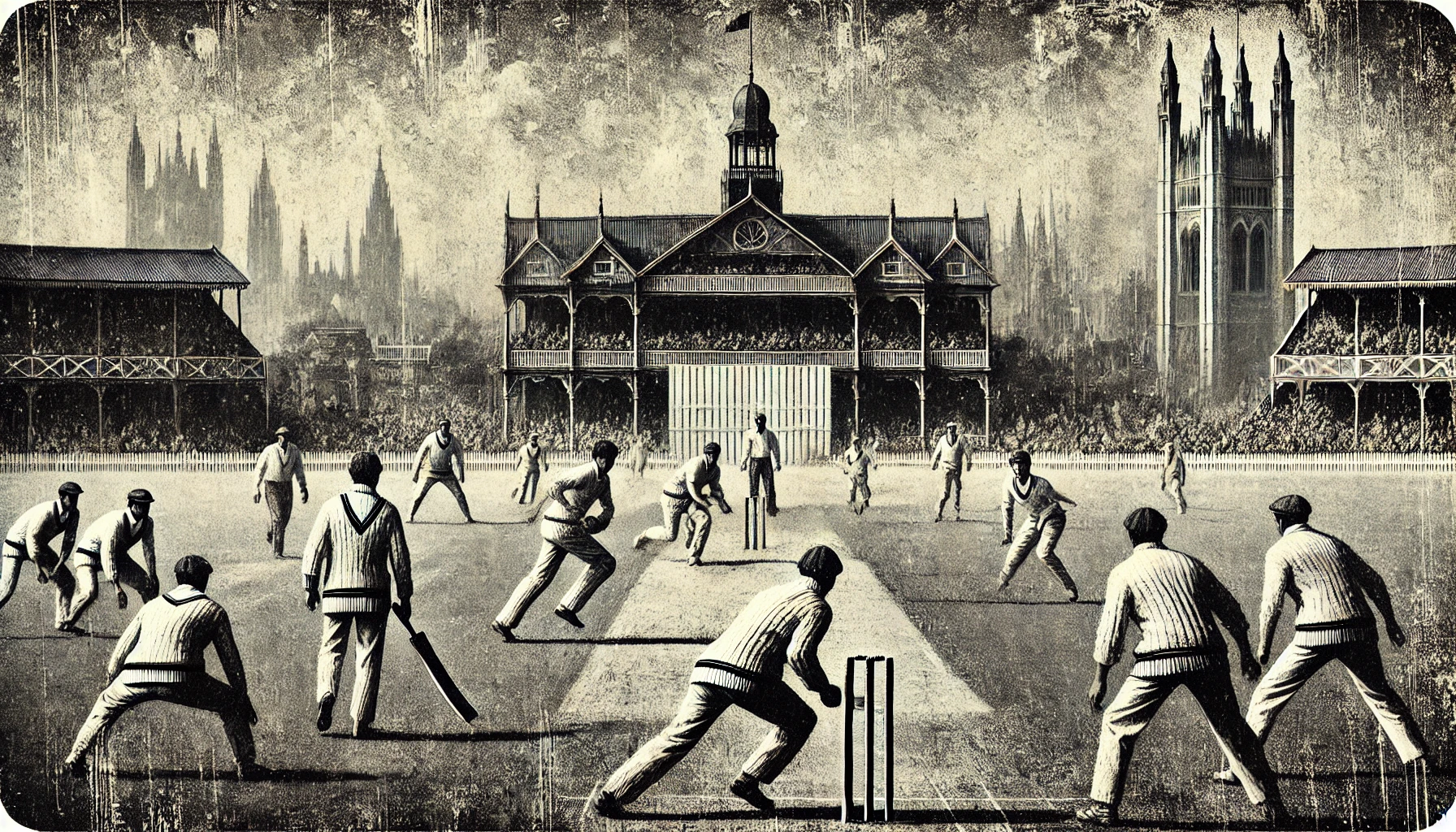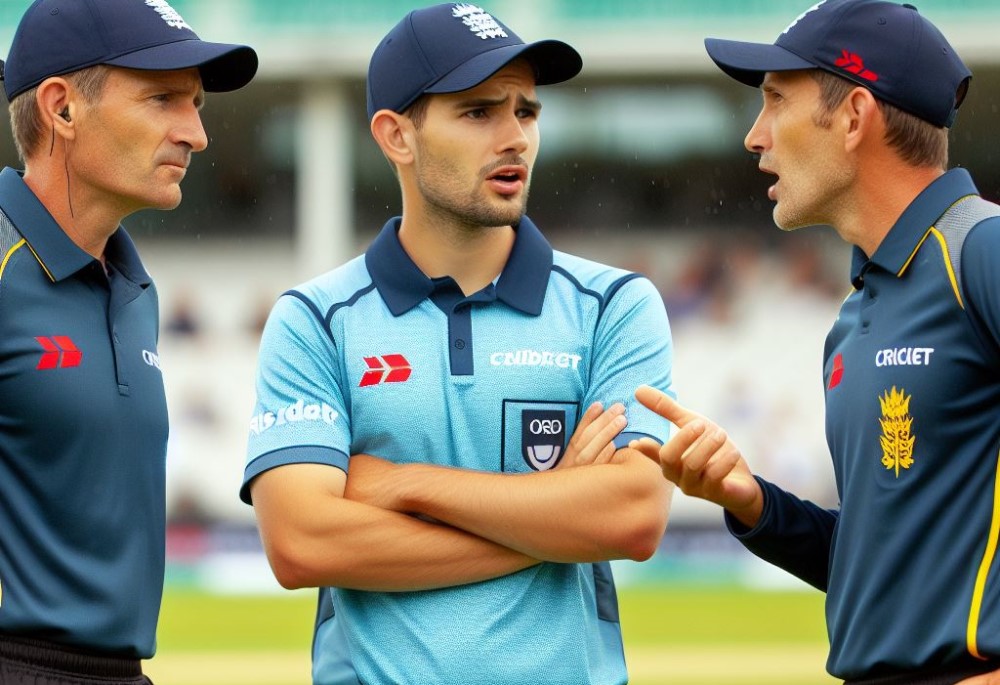
The Role of Cricket in Promoting Sportsmanship
Cricket is more than just a sport; it is a powerful tool for shaping character and instilling values that go beyond the boundary lines. The role of cricket in promoting sportsmanship is deeply rooted in the history and culture of the game. From the earliest days of the sport, cricket has been associated with principles of fairness, respect, and integrity—values that are integral to the spirit of the game.
Understanding the rules and scoring of cricket is fundamental to appreciating how the sport encourages sportsmanship. These rules are designed not only to govern the game but also to ensure that players conduct themselves with respect for opponents, umpires, and the game itself. Cricket’s emphasis on fair play is evident in every aspect of the sport, from how runs are scored to how disputes are settled on the field.
One of the key ways cricket promotes sportsmanship is by building confidence and self-esteem through structured play. Whether it’s a child learning the basics or a professional refining their skills, cricket teaches individuals to value teamwork, dedication, and perseverance. This process is crucial in developing a player’s character and sense of fair play. The importance of building confidence and self-esteem through cricket cannot be overstated, as it lays the foundation for a lifelong commitment to sportsmanship.
Cricket as a team sport is particularly effective in fostering sportsmanship among young players. The game teaches children the importance of working together towards a common goal, respecting their teammates and opponents alike. By emphasizing the benefits of cricket as a team sport for children, the sport instills values of cooperation, humility, and respect. These lessons are essential for children as they learn to navigate social interactions both on and off the field.
Furthermore, cricket’s inclusivity plays a significant role in promoting sportsmanship. The sport brings together individuals from diverse backgrounds, fostering a sense of unity and mutual respect. The promotion of inclusivity and diversity in cricket helps players develop a broader understanding of fairness and equality, which are key components of sportsmanship.
In addition to its social benefits, cricket also promotes sportsmanship through its emphasis on mental resilience and strategy. The mental aspects of cricket, such as dealing with pressure and maintaining focus, teach players the importance of discipline and patience—qualities that are essential for fair play. The focus on mental aspects of cricket underscores the sport’s holistic approach to developing both physical and moral integrity.
Finally, cricket’s strategies and tactics require players to think critically and act with integrity. Whether it’s a captain setting the field or a bowler deciding on their next delivery, the decisions made on the field are a reflection of the player’s respect for the game and their opponents. The strategic nature of the game reinforces the importance of cricket strategies and tactics in promoting sportsmanship.
The role of cricket in promoting sportsmanship is deeply embedded in the game’s culture and practices. By teaching players the value of fair play, respect, and integrity, cricket helps to build a society that values these principles both on and off the field. The sport’s ability to instill these values in its players is a testament to its enduring importance in promoting sportsmanship at all levels of play.
The Historical Roots of Sportsmanship in Cricket

Cricket has long been revered as the “gentleman’s game,” a sport where sportsmanship, fairness, and integrity are held in the highest regard. These values are deeply embedded in the history of cricket, with traditions that emphasize the importance of playing the game with honor and respect. The origins of cricket’s strong association with sportsmanship can be traced back to its early days in England, where the sport was played among the upper classes who valued etiquette and moral conduct as much as the skill of the game itself.
One of the earliest examples of cricket’s commitment to sportsmanship is the development of the Laws of Cricket, first codified in 1744 by the Marylebone Cricket Club (MCC). These laws were not just about the rules of play but also about how the game should be conducted with fairness and respect. The laws ensured that cricket was played in a spirit of equality, with an emphasis on gentlemanly behavior. This foundation laid the groundwork for cricket’s enduring reputation as a sport where sportsmanship is paramount.
The principle of “walking” in cricket is another tradition that highlights the sport’s commitment to sportsmanship. “Walking” refers to the practice where a batsman, knowing they are out, leaves the field without waiting for the umpire’s decision. This act is a voluntary admission of dismissal and is considered one of the purest forms of sportsmanship in the game. While not required by the rules, walking is seen as a sign of integrity and respect for the game, and players who walk are often celebrated for their honesty and adherence to the spirit of cricket.
Cricket’s emphasis on sportsmanship is also reflected in the concept of the Spirit of Cricket, a principle that goes beyond the written laws of the game. The Spirit of Cricket encourages players to uphold the highest standards of conduct, treating their opponents, teammates, and officials with respect and fairness. This unwritten code of ethics has been passed down through generations of cricketers and remains a central aspect of the sport today. It is a reminder that cricket is not just about winning but about playing the game in the right way.
In conclusion, the historical roots of sportsmanship in cricket are deeply ingrained in the sport’s traditions and values. From the early codification of the Laws of Cricket to the practice of walking and the Spirit of Cricket, the game has long emphasized the importance of integrity, respect, and fairness. These principles have shaped cricket into a sport that is not only competitive but also one that values sportsmanship above all else, setting an example for other sports to follow.
The Spirit of Cricket: Upholding Integrity on the Field
The Spirit of Cricket is a unique and essential element of the sport, embodying the ideals of sportsmanship, integrity, and respect. This guiding principle is central to how cricket is played and perceived, encouraging players to uphold the values that make the game fair, enjoyable, and honorable. The Spirit of Cricket is not just about following the rules; it’s about playing the game with a sense of ethics that respects the opponents, the officials, and the tradition of the sport.
One of the core aspects of the Spirit of Cricket is the emphasis on respect. Players are expected to treat their opponents with respect, recognizing that cricket is a contest between equals. This respect extends beyond the boundaries of the field and includes acknowledging the skills and efforts of the opposition, regardless of the outcome of the match. The handshake at the end of a game, a common practice in cricket, symbolizes this mutual respect and the recognition that the game is played in the right spirit.
The Spirit of Cricket also places a strong emphasis on fair play. Players are encouraged to play the game honestly and fairly, without resorting to tactics that would undermine the integrity of the sport. This includes adhering to the rules of the game, accepting the umpire’s decisions without dissent, and refraining from behavior that could be considered unsportsmanlike, such as sledging or deliberate attempts to deceive the officials. The Spirit of Cricket reminds players that how they play the game is as important as the result, and that winning should never come at the expense of integrity.
Another key component of the Spirit of Cricket is the responsibility of captains to ensure that their teams uphold these values. The captain is seen as the leader on the field and is responsible for setting the tone for how the game is played. Captains are expected to lead by example, demonstrating respect, fairness, and sportsmanship in their actions and decisions. They are also tasked with ensuring that their players conduct themselves in a manner that aligns with the Spirit of Cricket, fostering a team culture that prioritizes integrity and respect.
The Spirit of Cricket is also about preserving the traditions of the game. Cricket is a sport rich in history and tradition, and the Spirit of Cricket serves as a reminder of the values that have been passed down through generations. It encourages players to honor these traditions by playing the game with the same sense of sportsmanship and respect that has defined cricket for centuries. This preservation of tradition is what makes cricket a sport that is not only competitive but also deeply rooted in ethics and values.
In conclusion, the Spirit of Cricket is a guiding principle that upholds the values of sportsmanship, integrity, and respect on the field. By emphasizing respect for opponents, fair play, and the responsibility of captains, the Spirit of Cricket ensures that the game is played in a manner that is honorable and true to the traditions of the sport. It is a unique aspect of cricket that sets it apart from other sports and reinforces the importance of playing the game in the right spirit.
The Role of Umpires in Enforcing Sportsmanship

Umpires play a crucial role in cricket, not only as enforcers of the rules but also as guardians of sportsmanship. Their presence on the field ensures that the game is played fairly and that the values of integrity, respect, and fair play are upheld. Umpires are tasked with making impartial decisions, managing player behavior, and maintaining the spirit of the game, making them essential to promoting and enforcing sportsmanship in cricket.
One of the primary responsibilities of umpires is to enforce the rules of the game. This involves making decisions on matters such as dismissals, boundaries, and no-balls, as well as ensuring that the match is conducted in accordance with the Laws of Cricket. Umpires must apply these rules consistently and fairly, regardless of the teams or players involved. Their impartiality is crucial in maintaining the integrity of the game, as any perceived bias or inconsistency could undermine the spirit of fair play.
In addition to enforcing the rules, umpires also play a key role in managing player behavior. Cricket is a sport that values respect and sportsmanship, and it is the umpire’s job to ensure that players conduct themselves accordingly. This includes addressing any unsportsmanlike behavior, such as excessive appealing, dissent, or sledging, and taking appropriate action to maintain the spirit of the game. Umpires have the authority to issue warnings, impose penalties, or even dismiss players for conduct that is deemed to be against the spirit of cricket. By holding players accountable for their actions, umpires help to reinforce the values of sportsmanship and respect.
Umpires also contribute to maintaining the spirit of the game by promoting a positive and respectful atmosphere on the field. Their interactions with players, coaches, and officials set the tone for how the game is played. Umpires are expected to communicate clearly and respectfully, building trust and rapport with the players. This helps to create an environment where sportsmanship is valued and where players are encouraged to compete with honor and integrity. Umpires also play a role in diffusing tensions and resolving conflicts, ensuring that the game is played in a manner that is fair and respectful.
Another important aspect of the umpire’s role is their responsibility to uphold the Spirit of Cricket. Umpires are seen as custodians of the game’s traditions and values, and they are expected to ensure that the spirit of cricket is maintained throughout the match. This includes ensuring that the game is played with respect for opponents, officials, and the rules, and that any actions that go against the spirit of cricket are addressed. Umpires are also responsible for educating players, particularly younger or less experienced ones, about the importance of sportsmanship and fair play.
Umpires play a vital role in enforcing sportsmanship in cricket. By enforcing the rules, managing player behavior, and upholding the Spirit of Cricket, umpires help to ensure that the game is played with integrity, respect, and fairness. Their role is essential in maintaining the values that define cricket as a sport that prioritizes sportsmanship above all else.
The Impact of Sportsmanship on Team Culture
Sportsmanship is not just an individual trait; it plays a significant role in shaping the culture and dynamics of a cricket team. A team that embraces the values of sportsmanship—such as integrity, respect, and fair play—fosters a positive environment that enhances teamwork, cohesion, and overall performance. The impact of sportsmanship on team culture is profound, influencing how players interact with each other, approach the game, and represent their team on and off the field.
One of the key ways sportsmanship impacts team culture is by promoting mutual respect and trust among players. When team members consistently demonstrate respect for one another, whether in practice or during a match, it creates a foundation of trust and cooperation. Players are more likely to support each other, communicate effectively, and work together towards a common goal. This mutual respect is essential for building a strong team dynamic, where each player feels valued and motivated to contribute to the team’s success. A culture of sportsmanship encourages players to celebrate each other’s achievements, provide constructive feedback, and handle setbacks with grace.
Sportsmanship also plays a crucial role in enhancing team morale and unity. A team that prioritizes sportsmanship is likely to have a positive and inclusive atmosphere, where players feel a sense of belonging and camaraderie. This sense of unity is particularly important in cricket, a sport that relies heavily on teamwork and collaboration. When players know that they are part of a team that values fairness, respect, and integrity, they are more likely to be committed to the team’s success and willing to put in the effort needed to achieve it. Sportsmanship fosters a team spirit that can be a powerful motivator, driving players to perform at their best and support each other both on and off the field.
Another significant impact of sportsmanship on team culture is its role in developing leadership qualities. Teams that prioritize sportsmanship often produce leaders who exemplify these values, both in their actions and in their interactions with others. These leaders set the standard for how the team should conduct itself, both in victory and defeat. They lead by example, demonstrating fairness, humility, and respect in all aspects of the game. This type of leadership is crucial for creating a team culture that prioritizes sportsmanship, as it encourages other players to follow suit and embrace these values as well.
Sportsmanship also contributes to building a positive team reputation. Teams that are known for their sportsmanship are often respected and admired by opponents, officials, and fans alike. This positive reputation can enhance the team’s standing within the broader cricket community and create opportunities for recognition and success. A team that is respected for its sportsmanship is more likely to be seen as a model of fair play and integrity, which can have long-lasting benefits for the team’s legacy and influence.
Sportsmanship has a profound impact on team culture in cricket. By promoting mutual respect, enhancing team morale, developing leadership qualities, and building a positive reputation, sportsmanship helps to create a strong, cohesive, and successful team. A culture of sportsmanship not only benefits individual players but also contributes to the overall success and longevity of the team.
The Role of Cricket in Teaching Sportsmanship to Future Generations

Cricket plays a crucial role in teaching sportsmanship to future generations, instilling values that extend beyond the game and into everyday life. As a sport that emphasizes fairness, respect, and integrity, cricket provides a platform for young players to learn the importance of sportsmanship from an early age. Through coaching, mentorship, and participation, cricket helps to shape the character of young players, preparing them to be responsible, respectful, and ethical individuals both on and off the field.
One of the primary ways cricket teaches sportsmanship is through coaching and mentorship. Coaches play a vital role in imparting the values of sportsmanship to young players, emphasizing the importance of playing the game with integrity and respect. Through their guidance, coaches teach players how to handle victory and defeat with grace, how to respect their opponents, and how to play by the rules. Coaches also serve as role models, demonstrating sportsmanship in their own actions and interactions. By setting a positive example, coaches help to instill these values in their players, ensuring that they carry the lessons of sportsmanship with them throughout their lives.
Cricket also teaches sportsmanship through participation in the game itself. The experiences that young players have on the cricket field—whether it’s celebrating a teammate’s success, accepting an umpire’s decision, or shaking hands with an opponent after a match—reinforce the values of fairness, respect, and integrity. These experiences help young players to understand the importance of sportsmanship in a practical and meaningful way. By participating in cricket, young players learn how to work as part of a team, how to compete with honor, and how to conduct themselves with dignity and respect, regardless of the outcome of the game.
The role of cricket in teaching sportsmanship is also evident in the emphasis on the Spirit of Cricket. From a young age, players are introduced to the concept of the Spirit of Cricket, which encourages them to play the game in a manner that upholds the highest standards of conduct. This includes treating opponents, teammates, and officials with respect, playing by the rules, and embracing the traditions of the game. The Spirit of Cricket serves as a moral compass for young players, guiding their actions and decisions both on and off the field. By internalizing these principles, young cricketers learn to prioritize sportsmanship in all aspects of their lives.
In addition to teaching individual values, cricket also plays a role in fostering a sense of community and belonging among young players. The camaraderie and teamwork that are central to cricket help to create a supportive environment where sportsmanship is encouraged and celebrated. Young players learn the importance of supporting their teammates, working together towards a common goal, and contributing to a positive team culture. This sense of community reinforces the values of sportsmanship, as players understand that their actions impact not only themselves but also their teammates and the broader cricket community.
Cricket plays a vital role in teaching sportsmanship to future generations. Through coaching, participation, and the Spirit of Cricket, young players learn the importance of fairness, respect, and integrity. These values, instilled through the game of cricket, help to shape the character of young players, preparing them to be responsible, respectful, and ethical individuals both on and off the field. By teaching sportsmanship, cricket contributes to the development of well-rounded individuals who can positively impact their communities and society as a whole.
Conclusion: Cricket’s Enduring Legacy of Sportsmanship

Cricket’s enduring legacy of sportsmanship is a testament to the values that have defined the sport for centuries. From its historical roots to its modern-day practice, cricket has consistently emphasized the importance of fairness, respect, and integrity. These values are not only central to the game but also to the character and conduct of those who play it. Through the Spirit of Cricket, the role of umpires, and the impact of sportsmanship on team culture, cricket continues to set a standard for how sports should be played and appreciated.
The role of cricket in teaching sportsmanship to future generations ensures that these values are passed down and preserved, shaping the character of young players and preparing them to be responsible, ethical individuals. As cricket continues to evolve and grow, its commitment to sportsmanship remains as strong as ever, reinforcing the importance of playing the game in the right spirit.
Cricket’s legacy of sportsmanship is one of its greatest contributions to the world of sports. By promoting fairness, respect, and integrity, cricket not only enhances the game itself but also impacts the lives of those who play it. The values of sportsmanship, instilled through cricket, have a lasting impact that extends far beyond the boundaries of the field, making cricket a sport that is admired and respected around the world.





